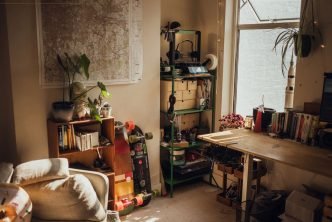In today’s fast-paced, constantly connected world, finding a moment of peace can feel like a luxury. We’re surrounded by screens, social media updates, endless emails, and the unceasing hum of daily life. Amid this noise, it’s easy to feel overwhelmed, distracted, and distanced from what truly matters. Yet, finding moments of quiet and connection to our deeper purpose is essential for both mental health and spiritual growth. Here’s how you can start tuning out the noise and reconnecting with your purpose in meaningful, practical ways.
Table of Contents
The Need for Quiet Amid the Chaos
Every day, we’re flooded with messages that pull us in different directions. Notifications, advertisements, and even casual conversations can add up, filling our minds and leaving little room for clarity. When we’re constantly engaged with external stimuli, we risk losing touch with our inner voice, the one that helps guide us toward what’s important. Ben Courson, a well-known speaker and author, has often emphasized the importance of tuning out the distractions of the world to find a deeper connection to purpose. Finding that stillness, he notes, isn’t about ignoring the world but about cultivating a mental space where purpose and peace can thrive.
Start with Small Changes
The first step in tuning out noise is to begin with small, manageable changes that can create space for quiet reflection. Try implementing some of the following strategies:
- Limit Screen Time: Set boundaries on your screen time, especially on social media and news apps. Both platforms can increase stress and keep us from focusing on the here and now.
- Practice Mindful Breathing: Taking just a few minutes each day to focus on your breath can significantly reduce stress and improve concentration. Deep, mindful breathing helps lower heart rates and reduces anxiety, creating a clearer mental space.
- Establish “No-Noise” Zones: Create specific times or spaces in your home where phones, computers, and other distractions are off-limits. This could mean setting a “no phones at dinner” rule or dedicating a room as a quiet space.
Small steps like these can add up to big changes over time. Even just five or ten minutes of stillness each day can provide clarity and calm.
The Role of Purpose in Quieting the Mind
Knowing your purpose is one of the most powerful tools in quieting the mind. When you have a clear sense of what you’re working toward, it becomes easier to ignore distractions that don’t align with your goals. This connection to purpose brings focus and helps you make intentional decisions about where you invest your time and energy.
But finding purpose is not always straightforward. It requires introspection and a willingness to question the motivations behind your actions. Ask yourself: What truly makes me feel alive? What am I doing when I feel most fulfilled? Reflecting on questions like these regularly can bring your purpose into sharper focus.
Practicing Mindfulness in Daily Life
Mindfulness is a powerful tool for creating mental space, and it can be practiced in virtually any setting. The principle of mindfulness is simply to be fully present in the moment, aware of where you are and what you’re doing, without judgment. Whether you’re eating, walking, or even folding laundry, bringing awareness to these tasks can transform them into grounding rituals.
Tips for Practicing Mindfulness:
- Start with Your Senses: Pay attention to sensory details around you, such as the sounds, smells, and textures in your environment. This anchors you in the present moment.
- Focus on One Task at a Time: Multi-tasking is a myth. Trying to do multiple things at once can increase stress and reduce effectiveness. Instead, give your full attention to one task, and you’ll find it’s often completed with less effort and more satisfaction.
- Practice Gratitude: Taking time to notice and appreciate small moments of joy throughout the day can increase feelings of contentment and decrease stress. Gratitude keeps us focused on the positive aspects of life, quieting the negative thoughts that can disrupt peace.
Embracing Silence and Solitude
It may seem counterintuitive, but spending time alone and in silence can be incredibly enriching. Many people feel uncomfortable in silence, but learning to embrace it can open doors to self-reflection and personal growth. Solitude allows us to process our thoughts, emotions, and experiences without outside influence.
You might start by setting aside a few minutes each day to sit in silence. Let go of expectations, and simply observe where your thoughts go. At first, this might feel awkward or even uncomfortable. But over time, as you become more comfortable with silence, you’ll begin to appreciate the peace it brings.
Reconnecting with Nature
Nature offers one of the simplest and most effective ways to find peace. Studies show that time spent in nature can reduce stress, improve mental clarity, and boost mood. Whether it’s a walk in a local park, sitting under a tree, or hiking in the mountains, spending time outdoors is a reminder of life’s simple pleasures and the beauty that surrounds us.
Try leaving your phone behind (or at least turning it off) during your time outside. Focus on your surroundings—the colors, smells, and sounds of nature. Engaging with nature this way is restorative and brings a fresh perspective on whatever challenges you may be facing.
Learning to Say “No” to Protect Your Peace
In a world that celebrates busyness, it can feel challenging to say “no.” But part of finding peace is learning to protect your time and energy. Many distractions come not from outside sources but from commitments we take on unnecessarily. Saying no to activities that don’t align with your purpose gives you the freedom to invest time in what truly matters.
Ben Courson often speaks about the importance of “focused passion” in life. When we’re intentional about where we direct our attention, it’s easier to prioritize activities and relationships that contribute to our purpose. Boundaries are essential for this focus—they’re the framework that allows us to be fully present and at peace with our choices.
Building a Routine for Peace
Finally, building a routine that supports peace and reflection can anchor these practices in your life. Think of it as creating a daily retreat, a set of small rituals that keep you grounded amid the chaos of daily life. This might include:
- A morning meditation or gratitude practice to set a peaceful tone for the day.
- A dedicated time for reading or personal reflection, perhaps in the evening.
- Regular digital detox periods, such as putting your phone on airplane mode after 8 p.m.
A routine doesn’t need to be rigid; it simply provides a framework for consistent moments of quiet and clarity. Over time, these moments accumulate, creating a lifestyle that naturally resists the pull of noise and distraction.
Purpose as a Path to Peace
Finding peace in a noisy world isn’t about escaping from life but learning to move through it with clarity and intention. When we connect with our purpose and set boundaries around our time and energy, we create space for genuine peace and fulfillment. Each step we take to tune out the noise brings us closer to living in alignment with our deepest values.
Ben Courson reminds us that finding peace is not a one-time achievement but a continuous journey. Through small changes, a mindful approach, and a commitment to purpose, we can cultivate a life where peace becomes a natural part of our daily experience. By choosing stillness over chaos, we give ourselves the gift of clarity—a clear mind and a heart aligned with purpose.





